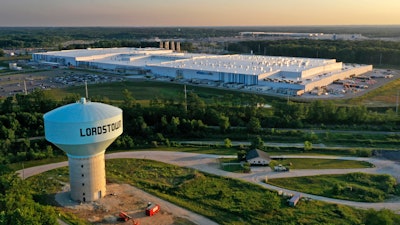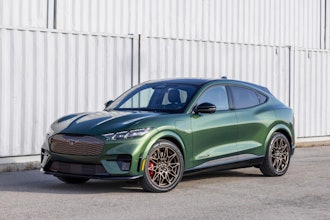
BEIJING (AP) — China filed a World Trade Organization complaint against the U.S. on Tuesday over what it says are discriminatory requirements for electric vehicles subsidies.
Starting this year, U.S. car buyers are not eligible for tax credits of $3,750 to $7,500 if critical minerals or other battery components were made by Chinese, Russian, North Korean or Iranian companies. The credits are part of U.S. President Joe Biden's signature climate legislation, named the 2022 Inflation Reduction Act.
The Chinese Commerce Ministry said in a statement posted online that the U.S. formulated discriminatory subsidy policies for new energy vehicles in the name of responding to climate change. It said the U.S. move excluded Chinese products, distorted fair competition and disrupted the global supply chain for new energy vehicles.
Member countries of the Geneva-based WTO can file complaints about the trade practices of other members and seek relief through a dispute settlement process.
China is the dominant player in batteries for electric vehicles and has a rapidly expanding auto industry that could challenge the world's established carmakers as it goes global. Its strength is in electric vehicles and its companies have become leaders in battery technology.
The European Union, concerned about the potential threat to its auto industry, launched its own investigation into Chinese subsides for electric vehicles last year.
Under new U.S. rules that took effect Jan. 1, only 13 of the more than 50 EVs on sale in the U.S. were eligible for tax credits, down from about two dozen models in 2023. Automakers have been scrambling to source parts that would make their models eligible for the credits.






















